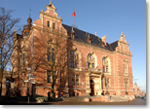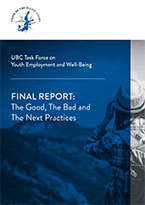Secretariat
Wały Jagiellońskie 1
80-853 Gdańsk Poland
tel. +48 58 301 09 17
tel. +48 58 301 91 23
fax +48 58 301 76 37
 Contact us
Contact us


UBC Resolution
adopted at the VIII General Conference in Turku,
29.09-2.10.2005
When the Union of Baltic Cities was founded nearly fifteen years ago, the Baltic Sea Region was un-dergoing a profound change. Barriers which had divided our region disappeared together with the Cold War. New organisations and structures were created to implement fresh ideas of co-operation.
Today, the Baltic Sea Region is facing a new situation. After the enlargement of the European Union, states bordering the Baltic Sea make up one third of the EU:s membership. This offers potentially a good opportunity to bring our priorities to the European attention and agenda.
However, much needs to be done to transform this potential into reality. Northern Europe and the Bal-tic Sea Region do not yet have the weight they deserve in European decision-making. Joint, concerted efforts by different actors - international organisations, governments, local and regional authorities, business communities, the academic world, civil society organisations and others - are needed.
The actors in the Baltic Sea Region have, in close co-operation, to define common priorities and a strategy how to promote our interests in the European Union and other important fora. There is also a serious need to review the effectiveness of existing structures of co-operation in the Baltic Sea Region. Special attention should also be paid on EU´s Northern Dimension policies, the continuation of which is currently under discussion.
The Union of the Baltic Cities has achieved many important and concrete results. It brings together more than a hundred member cities. Its commissions and networks are active in fields which are im-portant for the members and their needs.
One of the most successful examples is the work of the UBC Environment Commission and Agenda 21 Secretariat. It proves that consistent, long-term and devoted work can achieve results, which make a difference. Their work should be seen as an example for our work in other sectors, too.
The new Baltic Sea Agenda calls for reforms and restructuring of existing co-operation to meet the new challenges. In that process, it is vital that we treat the Baltic Sea as a whole. We must see that no new dividing lines are created in the region. The involvement of Russia is of utmost importance. Also co-operation with Norway must be developed.
Priority dimension should be, for example, the economy and environmental issues. We have to im-prove the competitiveness of our region. Creating a vision and action programme for co-ordination of a "Lisbon Agenda for the Baltic Sea Region" could be an important instrument to ensure that the objec-tives of the Lisbon Strategy are successfully implemented here. The Baltic Development Forum could be a natural partner in this.
Cities have a vital interest in ensuring durable, sustainable growth. More and more, the development of regions depends on the success of cities to thrive as "engines of growth". The cities can promote economic performance by creating a favourable environment through good governance, exchange of best practices and promotion of entrepreneurship.
The UBC and its member cities express their firm commitment to work for these goals. We call for closer co-operation between all relevant partners, i.a. the CBSS, to deepen the identity of the Baltic Sea Region and to promote our common interests regionally and on the European level.




